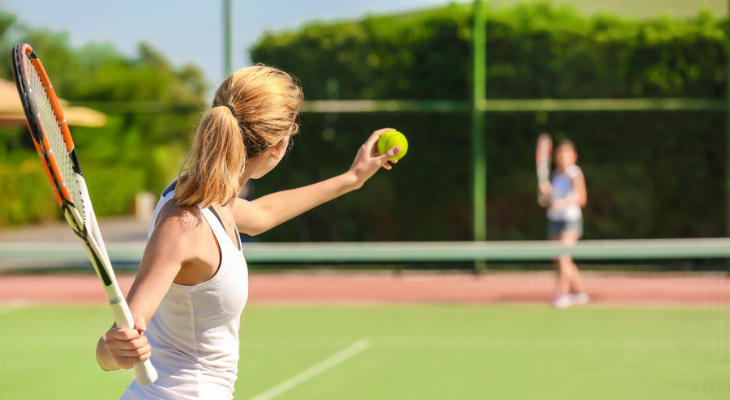
How Vision Therapy Can Improve Your Sports Performance
Do you wish you could get better at your favorite sport? Although some people are born athletes, many others struggle to improve despite years of practice. Surprisingly, the issue isn't always a lack of natural athletic ability. A problem with your vision could be holding you back from realizing your athletic potential. Luckily, many sports-related vision problems can be improved with vision therapy.
The Role Vision Plays in Sports
Visual acuity, or sharpness of vision, is just one facet of good vision. Many things affect your ability to see and react to your environment.
A teamwork issue could be to blame if you have trouble quickly switching your focus from the ball in front of you to a player at the other end of the field. If your eyes don't work well together as a team, you might notice blurry or double vision from time to time. Eye teaming issues can affect you off the field too. Do you experience headaches and eye strain while reading or writing a report on your laptop? These symptoms may be a sign of an eye teaming problem or another vision issue.
Good visual memory is also essential for success in many sports. If you have a problem with visual memory, it will be difficult to anticipate the movements of an opposing player if you can't remember his or her last position.
A problem with depth perception could make it hard to keep your balance on the balance beam, determine where a ball will land, or judge the distance between your golf ball and the hole.
Problems with any of these visual skills could also affect your ability to succeed in sports:
- Eye Tracking
- Eye-Hand Coordination
- Visual Perception and Processing
- Focusing
- Eye Movement
- Peripheral Vision
- Color Sensitivity
- Visual Reaction Time
- Peripheral Awareness
Is Vision Therapy Right for You?
Before recommending vision therapy, your vision therapist performs a comprehensive eye exam to assess your vision and visual skills. If the exam reveals a problem with a particular skill, he or she creates a vision therapy plan for you.
The therapy takes place in the vision therapist's office and is effective for both children and adults. During therapy sessions, you'll focus on improving the skills that hamper your athletic ability.
You might refine your visual memory skills by playing a matching game on the computer or improve your tracking skills by following the path of a small, dangling ball. If an eye-hand coordination problem is affecting your golf swing, you'll concentrate on enhancing that ability with a variety of games, exercises and activities.
Your vision therapist may also use balance balls, prisms and special lenses to help you improve your vision, in addition to teaching you a few vision exercises you can do at home between sessions.
Does Vision Therapy Work?
Vision therapy is recognized as an effective way to improve performance by the sports community. In fact, many college and professional sports teams work with vision therapists regularly. Research shows that vision therapy can improve many visual skills used in sports including:
- Contrast Sensitivity. Contrast sensitivity makes it possible to see shading and patterns and easily distinguish nearer objects from the background. University of California Riverside baseball players who completed vision therapy had better contrast sensitivity, near vision and visual acuity (sharpness) than players who didn't participate in the therapy. Those results translated to more runs and fewer strikeouts, according to the study, which was published in Current Biology in 2015.
- Binocular Vision. Binocular vision involves focusing on an object with both eyes to create a single image. In sports, good binocular vision helps you catch a ball or complete a pass successfully. In one study, female tennis players saw a noticeable improvement in their binocular vision after just eight weeks of vision therapy.
- Focusing. Focusing on near objects is difficult if you have convergence insufficiency (CI). CI occurs when both eyes don't turn inward to the same degree. The condition can cause blurred or double vision and poor depth perception. Vision therapy can often correct or improve focusing ability in just a few months. Seventy-five percent of children with CI who participated in a National Eye Institute-funded research study had normal vision or fewer issues after 12 weeks of treatment.
Are you ready to find out how vision therapy could help you boost your sports performance? Contact our office to schedule a comprehensive eye examination.
Sources:
National Eye Institute: More Effective Treatment Identified for Common Vision Disorder, 10/13/2008
All About Vision: Sports Vision Tests and Training, 2/27/2019
